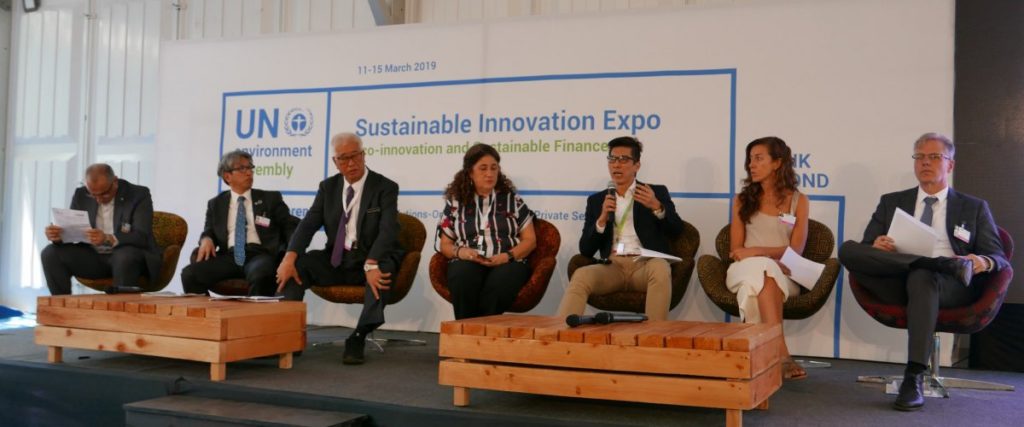Inadequate removal and treatment of waste poses a serious threat to human health and the environment. Waste dumpsites are the third largest source of global anthropogenic methane, a greenhouse gas twenty-eight times more potent than CO2, accelerating climate change.
Furthermore, open waste dumpsites are usually situated close to waterways, affecting marine ecosystems as well as the fishing and tourism sectors. Around 80 per cent of marine litter comes from land-based sources due to insufficient waste management practices.
On the opening day of the United Nations Environment Assembly, an important side event titled, ‘Innovative and Locally Appropriate Waste Management Solutions for a Pollution-free Planet”. The event was opened by Satya Tripathi, Assistant Secretary-General, UN Environment and Nobuyuki Konuma, who represented the Ministry of Environment of Japan.
Cities are some of the most important partners in addressing the complex set of issues that arise from the management of municipal solid waste. At the side event, representatives from business, cities, states and national governments presented their experiences in finding innovative solutions for waste management.
Gary Crawford, Vice-President of International Affairs of Veolia said waste management was key to achieving Paris Agreement goals and a pollution-free planet.
“Moving to a circular economy, with actions like preventing open burning and diverting organic waste from landfills, can reduce methane and other greenhouse gas emissions by 10-15%,” Mr. Crawford said.
There is increased finance for proper waste management. Investors are looking for bankable projects they can invest in. In order to create a pipeline of bankable projects we need to work with cities to create projects that work in their local contexts.
Mr. Kok Chung Cheang, Deputy Director General, Environment Protection at Singapore’s National Environment Agency said waste management not a private good. “If my neighbour does not treat his waste properly, it impacts me and others. In Singapore, waste management is not a service to be bought but rather a national health priority. Everyone has a part to play and everyone needs to pay.”
Maria Valeria Felix, General Directorate of Treatment and New Technologies, Ministry of Environment and Public Space, Buenos Aires, said Argentina has invested heavily in recycling. “The city processes 30 tonnes of organic waste, which it turns into compost, and recycles 10 tonnes of PET plastic daily.”
Ms. Felix said it was important to instill a sense of responsibility in future generations and the city’s waste treatment center had an education center and tour that accommodates up to 200 students a day.
Penang State has shown great political will to implement innovative initiatives that divert waste form landfill and ensure waste has alternative and beneficial uses for the residents. A key part of the city’s campaign is to teach youth to respect and love their environment.
“There is no waste until you’ve wasted it,” Mr Phee Boon Poh, Penang State Councilor for Welfare, Caring Society and the Environment. “We need to focus on the polluter and the waste generator and not the waste. With love we can have a better environment.”
Mr. Takuya Kitatsuji, Director of Environmental Bureau for Osaka City, said that it was important for cities to respond appropriately across broad areas of civil life and that it was also important for citizens, businesses and authorities to deepen their understanding of the relationship between themselves and the environment and to recognize their responsibility to protect the environment.
Antonis Mavropoulos, President of the International Solid Waste Association said there were important things the world needs to do to solve the waste problem.
“Going forward we need to close the waste infrastructure gap in the developing world, combine social and technical innovation, and shift consumption from wasteful to wasteless. We need to target waste pollution before it becomes a lethal threat to us and the ecosystems we rely on,” Mr. Mavropoulos said. “Solid Waste Management is an integral part of each and every effort for a sustainable future.”
The event was organized by the Climate and Clean Air Coalition and the International Solid Waste Association.
